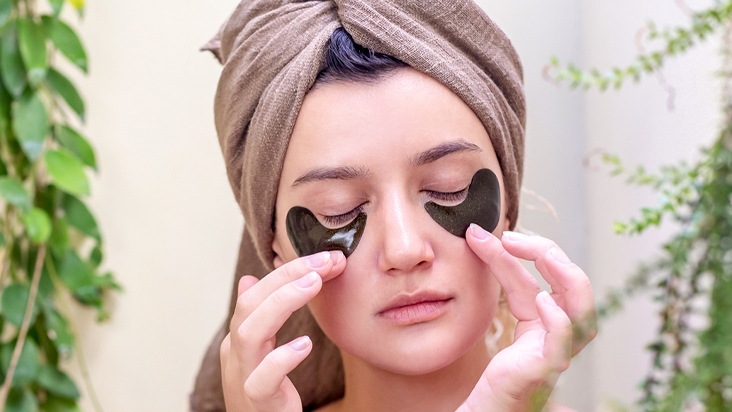The skin around the eyes is much better and thus more delicate than skin elsewhere on the body. It is more likely to display signs of dehydration and volume loss. According to studies, the undereye area contains fewer oil glands and collagen than the rest of the face, making it even tougher to keep hydrated and plump. In contrast to excessive screen time, other factors such as smoking, exhaustion from lack of sleep, and sun exposure wreak havoc on your undereye area, resulting in dark patches or sunken eyes.
As a result, most cosmetic shops will have a range of eye creams all reasoning to make your eyes look more radiant, younger, or more awake. Many of these gels and creams work to improve the sensitive undereye area by minimizing dark circles, bloating, and creating tighter-looking skin.
Eye creams can be used to target the following areas:
•Puffiness under the eyes
•Dark circles
•Wrinkles
•Fine lines
•Hyperpigmentation
Vitamin A and C, peptides, and ceramides are all significant ingredients in undereye gels that aid skin renewal and provide moisture to the eye area. Hyaluronic acid is used in a variety of eye gels to keep the eyes moist. It clings to the skin and moisturizes it. The under-eye area requires both hydration and support. Caffeine, which is commonly used in eye treatments, has natural properties that tighten the skin and decrease wrinkles. It is a well-known ingredient in eye gels because it acts to constrict blood vessels under the eyes. It also delivers much-needed comfort to fatigued eyes after spending all day staring at a screen.
Because of its therapeutic effects, vitamin K is another common element in eye gel. It’s sometimes utilized to help with blood clotting and healing incisions following surgery. Vitamin K can improve the anti-inflammatory effect and promote cellular metabolism in eye medications. Age causes the skin surrounding the eyes to thin. It can make the skin look crepey, and fine lines, often known as crow’s feet, can emerge over time. Retinol is another skincare ingredient that is gaining popularity among individuals who use it on a regular basis. Retinoids help slow the body’s natural fall in collagen formation by assisting with skin cell turnover.
Source – news18


